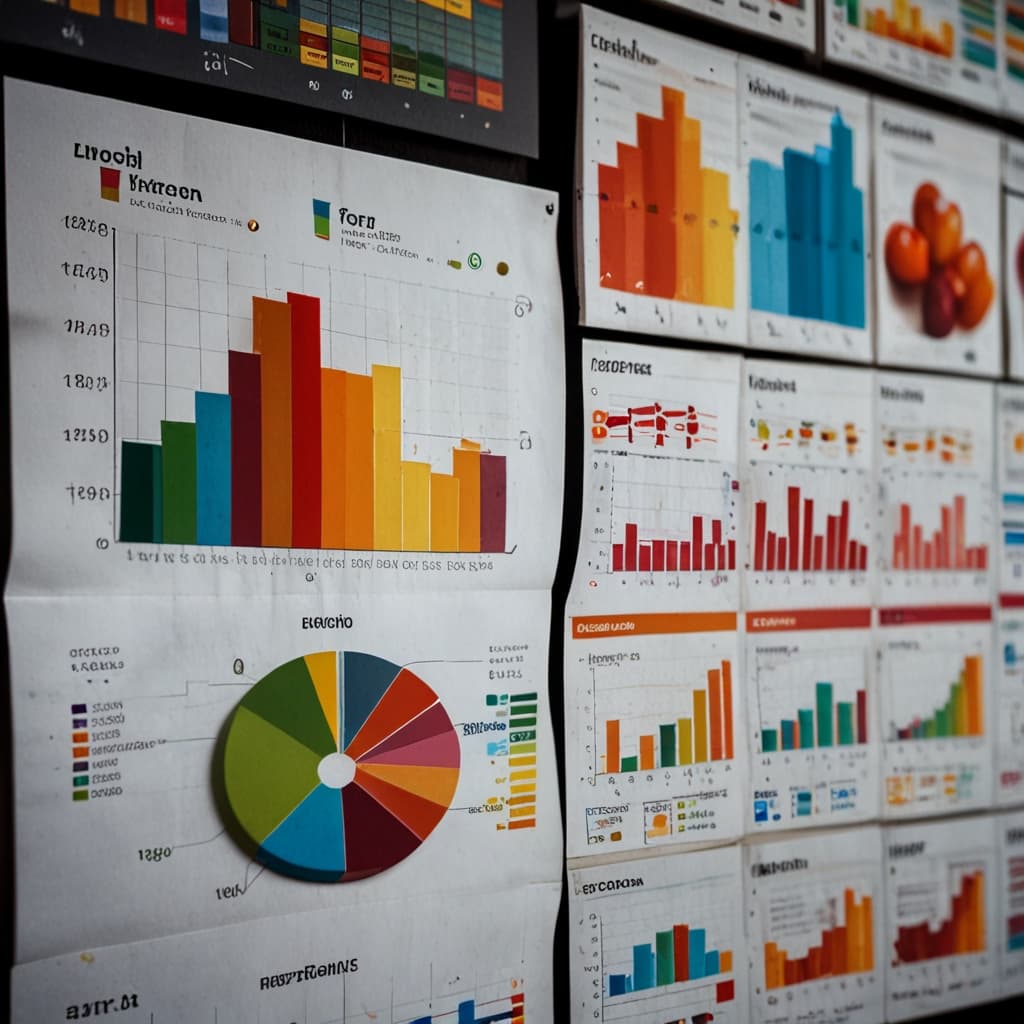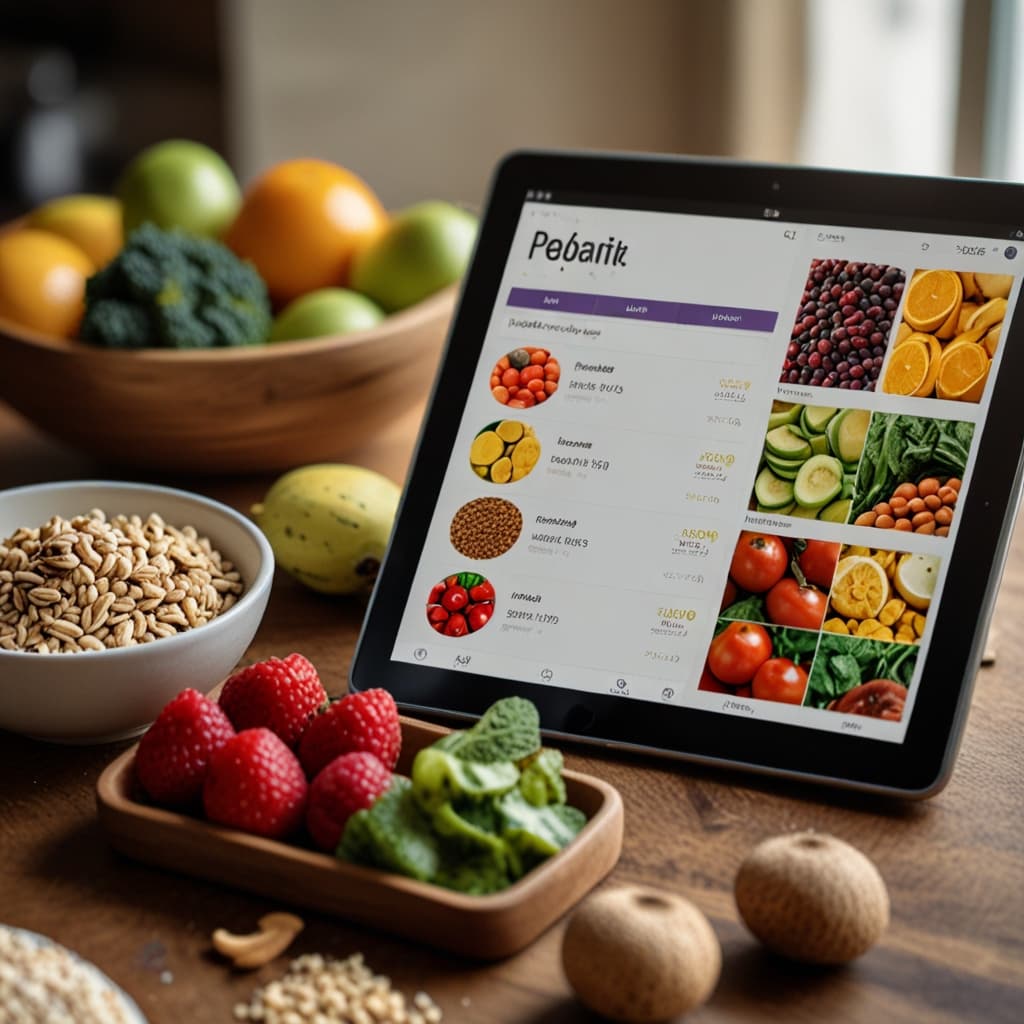Table of Contents
Maintaining a healthy diet is crucial for achieving long-term well-being. But, in today’s fast-paced world, keeping track of what we eat can be a challenge.
Thankfully, diet portals are here to help. These online tools provide an easy way to track your food intake, analyze nutritional data, and create personalized diet plans.
This guide will walk you through everything you need to know about diet portals and how they can help you live a healthier life.
What is a Diet Portal?

A diet portal is an online platform designed to help you monitor and manage your diet. These portals offer a range of tools for tracking food intake, analyzing the nutritional content of meals, and generating reports that can help you understand your dietary habits.
With a diet portal, you can make informed decisions about what you eat, which is crucial for achieving your health and fitness goals.
The Rise of Digital Health Tools

The increasing popularity of digital health tools, such as diet portals, reflects a broader trend toward the integration of technology in personal health management.
With the growing availability of smartphones and internet access, more people are turning to online resources to manage their diet and track their health.
This shift is driven by the convenience and accessibility these tools offer, making it easier than ever to stay on top of your health.
Why Use a Diet Portal?
There are several reasons why diet portals are becoming increasingly popular:
- Accurate Nutritional Analysis: Diet portals provide detailed information about the nutritional content of the foods you eat. This includes calorie count, macronutrient breakdown (carbohydrates, proteins, and fats), and micronutrient levels (vitamins and minerals).
- Convenience: These tools are available online and can be accessed anytime, anywhere. Whether you’re at home, at work, or on the go, you can easily log your meals and track your progress.
- Personalized Diet Plans: Many diet portals offer the ability to create customized diet plans based on your specific health goals. Whether you’re looking to lose weight, gain muscle, or simply maintain a healthy lifestyle, these plans can be tailored to meet your needs.
- Comprehensive Reports: Diet portals generate detailed reports that provide insights into your dietary habits. These reports can help you identify areas where you need to improve, such as increasing your intake of certain nutrients or reducing your consumption of unhealthy foods.
- Motivation and Accountability: Keeping track of your diet can help you stay motivated and accountable to your health goals. Seeing your progress over time can be a powerful motivator to continue making healthy choices.
Also Read: Top 10 Incredible Benefits of Good Nutrition: Your Path to a Healthier, Longer Life
The Science Behind Nutritional Tracking

The effectiveness of diet portals is backed by science. Studies have shown that people who track their food intake are more likely to lose weight and maintain a healthy diet compared to those who don’t.
This is because tracking makes you more aware of what you’re eating, which can help you make better choices. Additionally, diet portals can help you identify patterns in your eating habits that may be contributing to weight gain or other health issues.
How to Use a Diet Portal
Using a diet portal is straightforward. Here’s a step-by-step guide to get you started:
- Sign Up: Most diet portals require you to create an account. This allows you to save your data and access it from any device.
- Log Your Meals: Start by entering the foods you eat throughout the day. Many diet portals have extensive databases that include a wide range of foods, so you can easily find what you’re looking for.
- Tip: Be as detailed as possible when logging your meals. Include portion sizes, cooking methods, and any added ingredients (like sauces or dressings) to get the most accurate analysis.
- Analyze Your Diet: Once you’ve logged your meals, the portal will analyze the nutritional content of your diet. You’ll be able to see how many calories you’ve consumed, as well as the amounts of protein, carbohydrates, fats, vitamins, and minerals.
- Feature Spotlight: Some diet portals offer advanced analysis tools that can provide insights into your macronutrient balance and micronutrient intake. This can help you ensure that you’re getting the right nutrients in the right amounts.
- Set Goals: Based on the analysis, you can set specific health goals. For example, if you’re trying to lose weight, the portal might suggest reducing your calorie intake or increasing your physical activity.
- Custom Goals: Many diet portals allow you to set custom goals, such as increasing your fiber intake, reducing sugar, or hitting a specific protein target. This personalization ensures that your goals align with your unique health needs.
- Track Progress: Over time, you can use the portal to track your progress. Regularly reviewing your reports will help you stay on track and make adjustments as needed.
- Regular Check-Ins: Make it a habit to review your progress weekly. This will help you stay motivated and make any necessary adjustments to your diet or goals.
The Role of Technology in Health Management

The use of diet portals is part of a larger trend toward the use of technology in health management. As more people seek to take control of their health, digital tools like diet portals, fitness trackers, and health apps are becoming increasingly popular.
These tools provide users with the information they need to make informed decisions about their health, empowering them to take a proactive approach to wellness.
Benefits of Using Diet Portals
Diet portals offer a range of benefits that can help you achieve your health and wellness goals:
- Improved Health: By providing accurate nutritional analysis, diet portals can help you make healthier food choices. This can lead to improved overall health, including better weight management, increased energy levels, and reduced risk of chronic diseases.
- Case Study: A study conducted by the American Journal of Preventive Medicine found that individuals who used diet tracking apps consistently lost more weight and were better able to maintain their weight loss compared to those who did not track their diet.
- Increased Accountability: Tracking your food intake can help you stay accountable to your diet goals. When you see your progress laid out in front of you, it’s easier to stay motivated and make healthier choices.
- Example: Imagine logging into your diet portal and seeing that you’ve met your daily fiber intake goal for the past week. This positive reinforcement can encourage you to continue making healthy choices.
- Better Understanding of Your Diet: Many people are unaware of what they’re actually consuming on a daily basis. Diet portals provide a clear picture of your eating habits, helping you understand where you might be going wrong and what you can do to improve.
- Insight: By analyzing your diet, you might discover that you’re not getting enough protein or that your sodium intake is higher than recommended. These insights can guide you in making dietary adjustments that improve your health.
- Customizable Plans: Whether you have specific dietary restrictions or health goals, diet portals allow you to create personalized plans that suit your needs. This level of customization ensures that your diet is tailored to your individual preferences and requirements.
- Personalization: Many diet portals offer meal planning features that suggest meals and recipes based on your dietary preferences and goals. This can take the guesswork out of meal planning and help you stay on track.
- Cost-Effective: Many diet portals offer free versions or affordable subscription plans, making them a cost-effective way to manage your diet. Compared to hiring a nutritionist or personal trainer, using a diet portal is a budget-friendly option that still provides valuable insights and support.
- Value for Money: For the price of a few cups of coffee a month, you can gain access to a wealth of nutritional information and tools that can help you reach your health goals.
- Integration with Fitness Trackers: Many diet portals integrate with popular fitness trackers, allowing you to combine your diet and exercise data in one place. This can give you a more complete picture of your health and help you make more informed decisions about your lifestyle.
- Connected Health: By integrating your diet portal with your fitness tracker, you can see how your food intake affects your exercise performance and vice versa. This holistic view of your health can help you optimize both your diet and exercise routine.
Comparison of Popular Diet Portals

There are several diet portals available, each with its own set of features and benefits. Here’s a brief comparison of some of the most popular options:
- MyDietAnalysis: This tool is widely used in educational settings and offers comprehensive tracking and analysis features. It includes a large database of foods and provides detailed reports on nutrient intake.
- Strengths: Detailed nutritional analysis, large food database, customizable reports.
- Weaknesses: Limited integration with fitness apps, some features require a subscription.
- NutritionCalc Plus: A feature of McGraw-Hill Connect, this portal is known for its user-friendly interface and accurate nutritional data. It’s particularly popular among students and educators.
- Strengths: Easy to use, accurate data, excellent for educational purposes.
- Weaknesses: Primarily designed for educational use, may lack some features desired by general users.
- MyFitnessPal: One of the most popular diet tracking apps, MyFitnessPal offers a vast database of foods and easy-to-use tracking tools. It also integrates with other fitness apps and devices, making it a great all-in-one solution.
- Strengths: Large food database, integrates with fitness trackers, user-friendly.
- Weaknesses: Some features require a premium subscription, occasional inaccuracies in user-generated food entries.
- Cronometer: Cronometer is another popular diet tracking tool known for its detailed nutritional analysis and extensive database of foods. It’s especially useful for those who are serious about tracking micronutrients and specific dietary goals like keto or paleo diets.
- Strengths: Detailed micronutrient tracking, customizable reports, extensive food database.
- Weaknesses: The interface can be complex for new users, some advanced features require a subscription.
- Lose It!: This app focuses on calorie counting and weight management, with an easy-to-use interface that appeals to a wide range of users. It offers a barcode scanner for quick food entry and integrates with various fitness trackers.
- Strengths: User-friendly, quick food entry, integrates with fitness apps.
- Weaknesses: Limited focus on micronutrients, some features are locked behind a premium subscription.
How to Choose the Right Diet Portal for You

When choosing a diet portal, consider the following factors:
- Ease of Use: Look for a portal with an intuitive interface that makes it easy to log your meals and track your progress.
- Features: Consider what features are important to you. Do you need a portal that offers detailed nutritional analysis? Or are you looking for one that integrates with your fitness tracker?
- Cost: Some diet portals are free, while others require a subscription. Consider your budget and choose a portal that offers the features you need at a price you can afford.
- User Reviews: Read reviews from other users to get an idea of the portal’s strengths and weaknesses. This can help you make an informed decision.
- Customer Support: If you run into any issues, it’s important to have access to good customer support. Look for a portal that offers reliable support, whether it’s through online help articles, email, or phone.
Additional Features to Consider
When selecting a diet portal, there are some additional features you may want to consider:
- Barcode Scanner: A barcode scanner allows you to quickly log foods by scanning their packaging. This is a convenient feature for those who frequently consume packaged foods.
- Recipe Importer: Some diet portals allow you to import recipes from websites or manually enter your own. This feature is useful if you frequently cook at home and want to track the nutritional content of your meals.
- Community Support: Some portals have active communities where users can share tips, recipes, and support each other. This can be a valuable resource for staying motivated and learning from others.
- Offline Mode: If you often find yourself without internet access, look for a portal that offers offline mode so you can continue logging your meals even when you’re not connected.
Real-Life Success Stories
To understand the impact of diet portals, let’s look at some real-life success stories:
- Sarah’s Weight Loss Journey: Sarah used MyFitnessPal to track her meals and monitor her calorie intake. By sticking to her personalized diet plan, she was able to lose 20 pounds in three months. Sarah credits the app for helping her stay accountable and making it easy to see her progress.
- John’s Muscle Gain: John wanted to build muscle but wasn’t sure if he was getting enough protein. By using MyDietAnalysis, he was able to track his protein intake and make adjustments to his diet. Over the course of six months, John gained 10 pounds of muscle and improved his overall strength.
- Emma’s Improved Health: Emma struggled with managing her diabetes and wanted to make healthier food choices. By using NutritionCalc Plus, she was able to monitor her carbohydrate intake and make adjustments to her diet. As a result, Emma was able to better manage her blood sugar levels and improve her overall health.
- Mark’s Paleo Transformation: Mark wanted to switch to a Paleo diet but wasn’t sure where to start. He used Cronometer to track his nutrient intake and ensure he was meeting his dietary goals. Over the course of a year, Mark lost 30 pounds and reported feeling more energetic and focused.
Tips for Maximizing the Benefits of Diet Portals

To get the most out of your diet portal, keep these tips in mind:
- Be Consistent: Regularly logging your meals and reviewing your progress is key to achieving your health goals. Consistency will help you stay on track and make the most of the tools available.
- Set Realistic Goals: When setting goals, be realistic about what you can achieve. Start with small, achievable targets and gradually increase them as you progress.
- Use the Data: Take advantage of the data provided by your diet portal. Review your reports regularly and use them to make informed decisions about your diet and lifestyle.
- Stay Educated: Keep learning about nutrition and healthy eating. The more you know, the better equipped you’ll be to make healthy choices.
- Seek Support: If you’re struggling, don’t hesitate to seek support from friends, family, or the online community. Having a support system can make a big difference in your success.
- Experiment with Recipes: Many diet portals offer recipe suggestions based on your dietary goals. Don’t be afraid to try new recipes and experiment with different foods. This can help keep your diet interesting and prevent you from getting bored.
- Monitor Your Progress: Regularly reviewing your progress will help you stay motivated and make any necessary adjustments to your diet or goals. Consider setting up weekly or monthly check-ins to assess how you’re doing.
Diet portals are a powerful tool for anyone looking to improve their health and well-being. By providing accurate nutritional analysis, personalized diet plans, and comprehensive tracking tools, these platforms make it easier than ever to manage your diet and achieve your health goals.
Whether you’re looking to lose weight, gain muscle, or simply maintain a healthy lifestyle, a diet portal can provide the support and guidance you need.
In today’s digital age, taking control of your health has never been more accessible. By leveraging the power of diet portals, you can gain a deeper understanding of your dietary habits and make informed decisions that promote long-term health and wellness.
So why wait? Start using a diet portal today and take the first step towards a healthier you!




